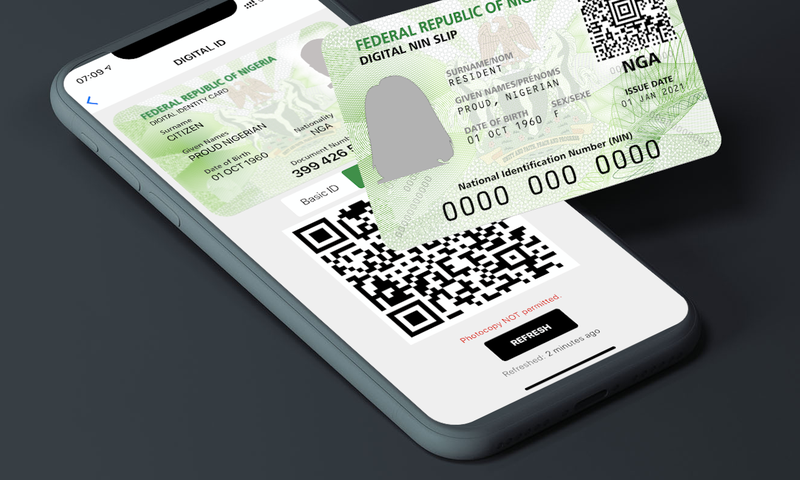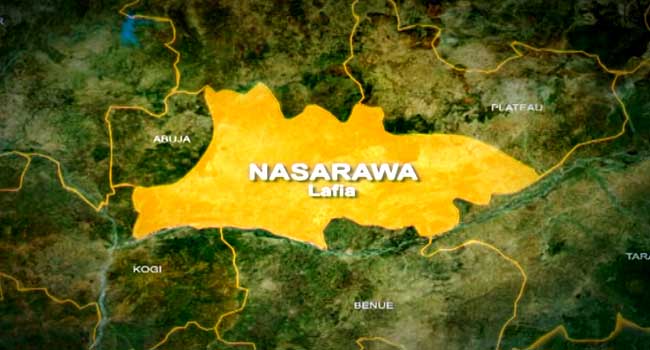By Chinwendu Obienyi
When Nigeria introduced the Bank Verification Number (BVN) in 2014, it was celebrated as a critical reform to sanitise the financial system, combat identity fraud and expand access to financial services.
In the years that followed, the National Identification Number (NIN) was launched to establish a unified digital identity framework for all citizens and residents.
However, more than a decade later, these two systems still operate in silos.
The absence of full integration between BVN and NIN has led to redundancy, systemic inefficiencies and a fragmented identity landscape and these are threatening to derail Nigeria’s ambitions for inclusive finance and sustainable economic transformation.
A recent report revealed that millions of Nigerians remain outside the formal banking system as the growth of BVN registrations had slowed significantly, flat-lining at 64.8 million as of January 2025.
On the other hand, over 102 million NINs have been issued in the same period.
Both BVN and NIN are biometric-based identity systems that collect similar personal data such as fingerprints, photographs, and demographic details.
However, they were designed by different institutions for different purposes: the BVN by the Central Bank of Nigeria (CBN) for banking KYC (Know Your Customer) purposes, and the NIN by the National Identity Management Commission (NIMC) to serve as Nigeria’s universal identification system.
Sadly, there is no single, unified database linking these identities. This disconnect has created overlapping records, fragmented verification processes, and bottlenecks in access to services, credit, and social programs.
According to the Enhancing Financial Innovation and Access (EFInA) 2023 survey, 5 per cent of banked adults, about 3 million people, still lack either a BVN or a National Identification Number (NIN), despite regulatory requirements. This gap undermines efforts to ensure every account holder is properly identified.
Further investigations revealed that of the 231.1 million registered bank accounts, 18.9 million are dormant and 23.3 million have been closed, reflecting deeper systemic challenges in account activity and management.
Thus, without a harmonised identity system, Nigeria’s push toward financial inclusion, digital banking, and credit expansion faces serious constraints.
The CBN and development partners have long highlighted that a unified, reliable digital identity is the bedrock of inclusive finance and that the lack of it leads to: inaccurate data on banked versus unbanked populations, limited access to micro-credit and formal loans, vulnerabilities to fraud, duplicate accounts and money laundering, ineffective targeting of social intervention programs and policy blind-spots in monetary transmission and tax mobilization.
Recently, President Bola Tinubu announced that the federal government will roll out a new phase of its consumer credit programme this month, targeting the empowerment of 400,000 young Nigerians, including members of the National Youth Service Corps (NYSC). He also recently signed into law four tax reform bills after months of consultations with various stakeholders
However, his bold economic reform plans will depend on credible identity data because efforts to eliminate ghost workers, streamline palliative distribution and digitise taxes all hinge on knowing who is who.
The argument for NIN-BVN integration is both practical and strategic.
The BVN, while robust for banking, is limited to account holders, it excludes the millions in the informal economy or outside the banking system. Meanwhile, the NIN is more inclusive, serving as a foundational ID for all Nigerians, but its adoption by the banking and fintech sectors remains inconsistent.
In 2022, the CBN mandated that all BVNs be linked to NINs, a welcome step. But progress has been slow, owing to institutional siloing, weak data interoperability, and bureaucratic overlap between the NIMC and financial regulators.
Cost of inaction
Already, the cracks are showing as the BVN database is aging, with growth slowing significantly. Only 1.35 million new BVNs were registered in 2024, a modest 2.1 per cent increase compared to earlier years. Meanwhile, Nigeria’s unbanked adult population remains in the tens of millions.
According to economic analysts, this identity fragmentation makes it harder to; issue digital loans, develop credit history, validate tax records, roll out universal health or education IDs and expand fintech products to the informal sector.
Similarly, as stated earlier, it also raises fraud risk. With duplicate and unverifiable accounts still in the system, KYC lapses persist, undermining anti-money laundering (AML) efforts and investor confidence in Nigeria’s digital financial landscape.
Experts’ views
Experts who spoke to Daily Sun, stressed that other developing countries have made strides in harmonising their ID systems.
Highlighting Rwanda’s national ID system links to mobile wallets, taxes, health care, and banking and India’s Aadhaar system which enables instant KYC for bank accounts and digital lending, they stated that Nigeria has the scale, talent, and digital infrastructure to replicate these models but only if political will and inter-agency collaboration improve.
Head of Research at Nova Capital, Tobi Lawson, said, “If the NIN becomes the universal identity anchor, and BVN becomes a financial layer linked to it, then banks, fintechs, and government can work off a single source of truth. That is how you scale financial access, plug subsidy leakages, and build an inclusive credit system.”
On her part, team lead at EFInA, Chinasa Collins-Ogbuo, stated that the high level of infrastructure to enable NIN-BVN linkage is not available at the moment.
“I would totally agree and state that strengthening NIN-BVN integration would fast track the process of accepting or rejecting offers in banking transactions. However, we need to adopt a high level of IT which is readily not made accessible to all Nigerians. Firstly, we need to establish an automated pipeline between NIMC and NIBSS for real-time data exchange, ensure that all future BVNs are issued only after verifying a valid NIN, equip banks, agents, and fintechs with tools to verify both NIN and BVN instantly and use Nigeria’s expansive digital finance ecosystem to onboard users in remote areas”, she said.
Conclusion
Stakeholders are unanimous that for Nigeria to become a truly inclusive, data-driven economy, identity must come first.
The separation between BVN and NIN no longer makes sense in a world where fintechs are reshaping finance and governments are digitising service delivery.
The integration of NIN and BVN will help Nigeria build a digital credit economy, reach the unbanked, streamline subsidy programmes, and support monetary stability. Hence, with reforms gathering momentum, the time to fortify a digital economy is now.


















Leave a comment